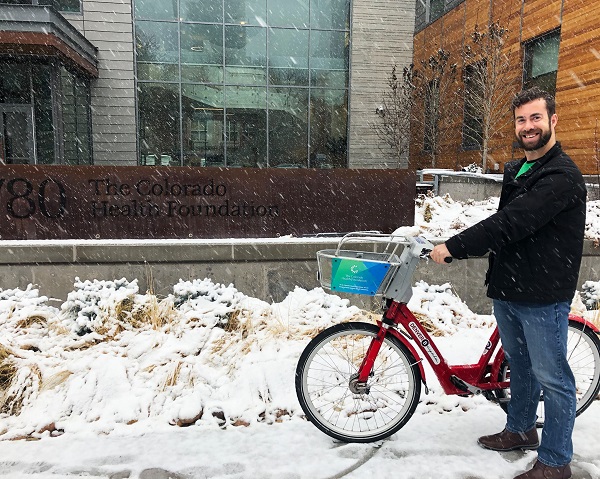
By Sean Dollard
As an undergrad, I had the opportunity to volunteer with StandUp For Kids – Miami. I sought out the opportunity, in part, to remember that my day-to-day mental health challenges presented far fewer significant barriers than the folks we were serving.
Many volunteers were peers and friends from the University of Miami and other local colleges. We would regularly gather at coffee shops or the library to reflect on our experience after street outreach or a mentoring session with youth experiencing homelessness. I remember freezing up on one occasion when it was my chance in our mentoring program to share about what it was like to attend college.
The question was posed by a 16-year-old who had been justice-involved from a very young age. His eyes were locked in a state of anxious anticipation. The blood rushed to my face in this moment, knowing that I wanted to speak hope into his future without overpromising. I also wanted to avoid drifting into a state of anger at all the mechanisms of systemic oppression and life challenges that have built nearly impossible barriers for kids like him to overcome.
But instead, I just froze, not saying a word. Our group leader ended up speaking, well aware that my state of silence fell short in this moment. I spoke to her afterward; she showed compassion but hinted that this type of setting may prove too difficult for me to contribute meaningfully.
That was ten years ago, in the heart of my personal struggles and a short time before I’d battle experiencing homelessness firsthand. Somewhere in this timeframe I sent a detailed note to my friend and mentor, Eddy, who was directing Miami’s program at the time (and who is now on the national board). I told Eddy I’d be stepping back from my volunteer commitments to focus on studying for the LSAT. The truth was I could not share just how much the reality of youth homelessness in Miami shook me–nor the helplessness I felt when charged with changing youths’ reality for the better.
It would take many years of personal development, therapy, and learning to manage my own anxiety and depression before I rebounded. I again connected with Eddy after beginning my AmeriCorps service year in Miami in 2012. Eddy moved to DC but put me in touch with the new StandUp For Kids leaders. I grew to know Liz, Aaron, Jair and Candace—a new team of dedicated volunteers—who provided a welcoming setting for youth twice each week in downtown Miami. After my life challenges, I brought a different set of lived experiences to the table in each of my interactions.
One of my projects in AmeriCorps was to co-develop a youth Point-in-Time count survey focused on identifying young people ages 18-24 experiencing homelessness on a single night in the summer. This would be the first “youth focused” point-in-time count in Miami’s history, and much of the prep included youth representation and volunteers of StandUp For Kids at the table.
Though the complex needs of our nation’s young people without a home still far outpace available resources, it is only with grassroots service that change can happen. Eventually, policymakers and the nuanced web of homeless continuum of care systems in each major U.S. municipality will begin to incorporate a vision of ending youth homelessness.
I stay in touch regularly with my friend Eddy. My AmeriCorps year was still marked with significant challenges but I’m so grateful for each of the lessons that people around me, youth especially, taught me about life, resilience, hope, and a second chance.
Ten years after I first became a volunteer, I can say confidently that we need to own our experiences, be vulnerable, and learn to “stand up” for one another – particularly young people who are facing realities that would be difficult for most to comprehend. We all must get to work and do better.
